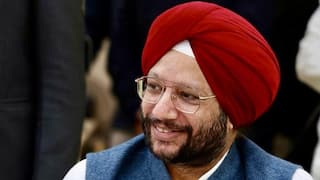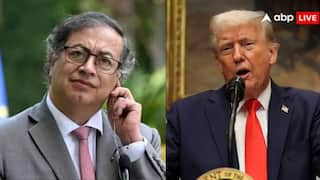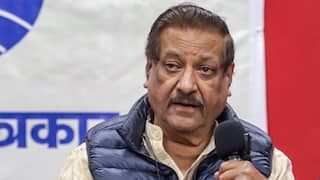LS Passes Demands For Grants, Authorises Govt To Withdraw Rs 122.43 Lakh Cr From Consolidated Fund
The Appropriation Bill authorising payment and appropriation of Rs 122.43 lakh crore from the Consolidated Fund of India for 2022-23 was introduced by Finance Minister Nirmala Sitharaman.

New Delhi: The Lok Sabha on Thursday passed the Demands for Grants and Appropriation Bill 2022, authorising the government to withdraw Rs 122.43 lakh crore from the Consolidated Fund of India for its working as well as implementation of programmes and schemes for the fiscal beginning April 1.
This completes two-thirds of the budgetary exercise by the Lok Sabha.
The Appropriation Bill authorising payment and appropriation of Rs 122.43 lakh crore from the Consolidated Fund of India for 2022-23 was introduced by Finance Minister Nirmala Sitharaman.
The bill was later approved by voice vote after rejecting several cut motions moved by opposition members.
The Lok Sabha earlier discussed demands for grants of different ministries, including railways, road transport and highways, civil aviation, commerce and industry and port, shipping and waterways.
Speaker Om Birla later applied the guillotine, after which all the outstanding demands for grants, whether discussed or not, were put to vote at once and passed.
After that, the Appropriation Bill was taken into consideration and passed by the lower house of Parliament.
The Lok Sabha will now discuss the Finance Bill, which essentially contains the government's tax proposals. The budget exercise will complete with the passage of the Finance Bill.
Both appropriation and finance bills are classified as money bills which do not require the explicit consent of the Rajya Sabha. The upper house only discusses them and returns the bills.
After the passage, the Finance Bill enters the statute as the Finance Act and the final Budget gets approved.
While guillotine literally is a large, weighted blade used for executing a condemned person, in legislative parlance, to ''guillotine'' means to bunch together and fast-track the passage of financial business.
It is a fairly common procedural exercise in the Lok Sabha during the Budget Session.
After the Budget is presented, Parliament goes into recess for about three weeks, during which the House Standing Committees examine demands for grants for various ministries, and prepare reports. After Parliament reassembles, time is allotted for discussions on the demands for grants of some ministries.
Related Video
Uttarakhand News: Winter Chill Grips North India; Kedarnath Dham Covered in Snow
Top Headlines





































